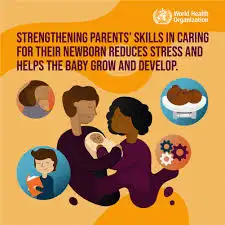
Awareness is the foundation of personal development and growth. It refers to the ability to recognize and understand one’s thoughts, feelings, and surroundings. By becoming more aware, individuals can identify their strengths and weaknesses, setting the stage for transformative change. Awareness is not just knowing what is happening in the present moment, it's also about being conscious of our habits, behaviors, and reactions. This implies a deep understanding of ourselves which leads to better decision-making and healthier relationships. To cultivate awareness, one can practice mindfulness techniques such as meditation, journaling, or simply taking time out to reflect on their day. By doing so, we create a space for self-discovery and insight. Developing awareness influences various aspects of life positively. Firstly, it enhances emotional intelligence, allowing individuals to recognize and manage their emotions effectively. Secondly, it improves focus and concentration, as being aware means being fully present in the current moment. Additionally, awareness enables better stress management as individuals learn to identify triggers and respond to stressful situations calmly. Recognizing patterns in our behavior also leads to more informed choices, fostering personal and professional growth. Some key benefits include:Unlock Your Potential with the Power of Awareness
Understanding Awareness
The Benefits of Developing Awareness
Furthermore, when one is aware of their goals, they can align their daily actions with their long-term aspirations, making the journey towards achieving their dreams more attainable.
Practical Strategies to Enhance Awareness
There are numerous practical strategies that one can adopt to enhance awareness daily. First, practice mindfulness meditation. Allocating a few minutes each day to sit quietly, focus on breathing, and observe thoughts without judgment can significantly improve awareness. Next, journaling serves as an excellent tool for reflection. Writing down thoughts, emotions, and experiences helps individuals process their feelings and identify recurring themes in their lives. Another effective strategy is to engage in active listening during conversations. This involves giving full attention to the speaker, which promotes a deeper understanding of others and strengthens interpersonal connections. Lastly, seeking feedback from trusted friends or mentors can provide insights into one’s behaviors and attitudes that may not be easily recognizable. Each of these strategies requires consistent effort, but over time, they lead to substantial improvements in awareness.
Awareness in the Context of Personal Growth
Awareness is crucial in the journey of personal growth. It acts as a catalyst for change, empowering individuals to confront their fears and limitations. Through self-awareness, we gain clarity about our passions, desires, and values, which guides our choices and actions. Moreover, understanding our behavior patterns helps identify self-sabotaging thoughts that have hindered our progress in the past. With heightened awareness, we can dismantle these limiting beliefs and replace them with positive affirmations. Another essential aspect is goal-setting. By being aware of our aspirations, we can create a step-by-step plan that brings us closer to achieving our dreams. The process of tracking progress further reinforces our commitment to growth. Finally, self-awareness fosters a growth mindset, encouraging us to view challenges as opportunities for learning and development rather than threats. In this way, awareness propels us forward on our journey to realizing our full potential.
Overcoming Challenges in Building Awareness
Common Barriers to Awareness
While the journey of enhancing awareness is rewarding, it is not without challenges. Common barriers include distractions, as modern life is filled with noise and interruptions that can easily divert attention away from self-reflection. Furthermore, negative self-talk can create a mental block, making it difficult to embrace the practice of self-awareness. Emotional discomfort also plays a significant role, as confronting inner thoughts and feelings can bring up pain or anxiety which many might prefer to avoid. Lastly, lack of time in a hectic schedule can hinder regular reflective practices, leading to stagnation in personal growth.
Strategies to Overcome These Barriers
To overcome the challenges in building awareness, setting realistic expectations is crucial. Individuals should recognize that personal growth takes time and patience, allowing themselves the grace to progress at their own pace. Establishing a consistent routine that incorporates moments of mindfulness can also mitigate distractions. Prioritizing key reflection times, perhaps in the morning or before bed, can create a habit that becomes integrated into daily life. Additionally, practicing self-compassion combats negative self-talk. Reminding oneself that imperfection is part of the human experience encourages a healthier mindset. Finally, utilizing tools such as planners or apps can help manage time effectively, making space for awareness practices. By addressing barriers proactively, individuals can cultivate a stronger sense of awareness.
The Transformative Power of Awareness
The transformative power of awareness is evident in countless personal success stories. Many individuals have experienced profound changes in their lives after adopting awareness practices. For example, a successful entrepreneur attributes their achievements to heightened self-awareness, stating that it allowed them to make sound decisions while navigating challenges in their business. Others have reported improved relationships after becoming more aware of their communication styles and emotional responses. Awareness helps in recognizing the impact of one’s words and actions on others, leading to more profound connections. Furthermore, athletes and performers often emphasize the importance of mental awareness in enhancing performance. They understand that being in tune with their body and mind boosts their concentration and confidence. These stories illustrate that by unlocking the potential with the power of awareness, individuals can experience radical shifts in their personal and professional lives.
Frequently Asked Questions
What is mindfulness and how can it improve my awareness?
Mindfulness is the practice of being present in the moment, promoting awareness of thoughts and feelings without judgment. It can improve awareness by helping you recognize your habitual responses and thought patterns.
How long does it take to develop awareness?
The time it takes to develop awareness varies per individual. Consistent practice, reflection, and openness to learning can lead to noticeable improvements within weeks or months.
Can I practice awareness in group settings?
Absolutely! Group settings, such as workshops or discussion circles, can enhance awareness through shared experiences and collective reflection, providing different perspectives to deepen individual understanding.